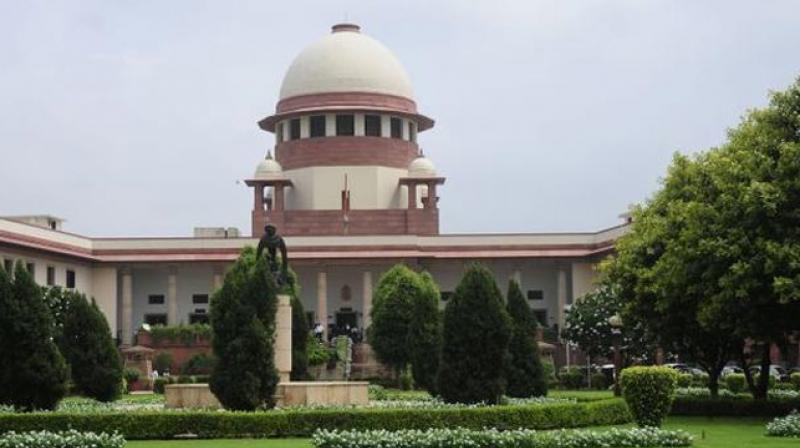Submit written submissions to AG by March 30: SC on triple talaq case
The bench had made it clear that it would not deal with the factual aspects of the case and would rather decide the legal issue.

New Delhi: A five-judge constitution bench would be set up by the Supreme Court to hear and decide on a batch of petitions relating to the practice of triple talaq, 'nikah halala' and polygamy among Muslims.
A bench headed by Chief Justice J S Khehar took three sets of issues on record, framed by parties with regard to the cases and said the questions for consideration of the constitution bench would be decided on March 30.
The bench, also comprising Justices N V Ramana and D V Chandrachud, said "the issues are very important. These issues cannot be scuttled".
Referring to the legal issues framed by the Centre, it said all of them relate to the constitutional issues and needed to be dealt by a larger bench.
The bench asked the parties concerned to file their respective written submissions, running not beyond 15 pages, by the next date of hearing, besides the common paper book of case laws to be relied upon by them during the hearing to avoid duplicity.
When a woman lawyer referred to the fate of the apex court judgement in the famous Shah Bano case, the bench said "there are always two sides in a case. We have been deciding cases for last 40 years. We have to go by the law and we would not go beyond the law."
The bench also made it clear that it is willing to sit on Saturdays and Sundays to decide on the issue as it was very important.
During the last hearing, the apex court had said it would decide the issues pertaining to 'legal' aspects of the practices of triple talaq, 'nikah halala' and polygamy among Muslims but not deal with the question whether divorce under Muslim law needs to be supervised by courts as it fell under the legislative domain.
'Nikah halala' means a man cannot remarry a woman after triple talaq unless she has already consummated her marriage with another man and then her new husband dies or divorces her.
The bench headed by the CJI had said "You (lawyers for parties) sit together and finalise the issues to be deliberated upon by us."
The bench had made it clear to the parties concerned that it would not deal with the factual aspects of the particular case and would rather decide the legal issue.
The apex court had said that the question whether divorce under Muslim Personal Law needed to be supervised by either courts or by a court-supervised institutional arbitration fell under the legislative domain.
It, however, allowed lawyers to file small synopsis of cases pertaining to alleged victims of triple talaq.
The Centre had earlier opposed the practice of triple talaq, 'nikah halala' and polygamy among Muslims and favoured a re-look on grounds like gender equality and secularism.
Ministry of Law and Justice had referred to constitutional principles like gender equality, secularism, international covenants, religious practices and marital law prevalent in various Islamic countries.
Responding to a batch of petitions including the one filed by Shayaro Bano challenging the validity of such practices among Muslims, the Centre had first dealt with the right of gender equality under the Constitution.
All India Muslim Personal Law Board, however, had rubbished the stand taken by the Narendra Modi government that the apex court should re-look these practices as they are violative of fundamental rights like gender equality and the ethos of secularism, a key part of the basic structure of the Constitution.
Another prominent Islamic organisation Jamiat Ulema-i-Hind had told the court there is no scope for interference with the Muslim Personal Law in which triple talaq, 'nikah halala' and polygamy are well rooted and stand on much higher pedestal as compared to other customs.

